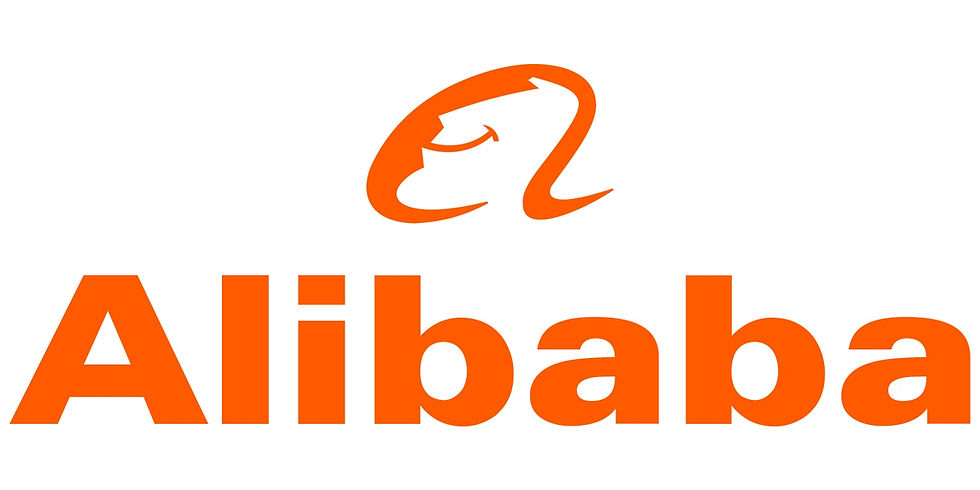China Digital Digest Weekly: Exploring the Chinese Digital Landscape
- ClickInsights

- Dec 13, 2022
- 4 min read
Hi folks, we are back with our weekly edition of China’s Digital Digest, wherein we would bring you weekly updates on China’s digital space. The report takes a quick glance at China’s complex and rapidly evolving social media landscape by providing updates on the latest happenings across the social media industry. Here are the major highlights of the report.
1. US State of Indiana Sues TikTok, Alleging Chinese Access to User Data
Indiana has sued Chinese-owned video-sharing app TikTok over allegations that it is deceiving users about China’s access to their data and exposing children to mature content.

The office of Indiana Attorney General Todd Rokita, a Republican, said the popular app, owned by ByteDance, violates the state’s consumer protection laws by not disclosing the Chinese government’s potential to access sensitive consumer information. TikTok also deceived young users and their parents with its age rating of 12-plus in Apple’s and Google’s app stores, Rokita’s office said in a complaint filed on Wednesday. The complaint added that inappropriate sexual and substance-related content can easily be found and are pushed by the company to children using TikTok.
2. Kuaishou E-commerce to Supply One Billion Red Envelopes for New Year’s Shopping Festival
On December 5, the Chinese short video platform Kuaishou announced that it would drive traffic to over 6 billion views and provide one billion virtual red envelopes to help merchants boost business on its e-commerce platform.

This year, Kuaishou’s 2023 New Year Shopping Festival will be held from December 24, 2022, to January 2, 2023, with product themes ranging from clothing to New Year’s gifts. At the same time, Kuaishou will launch special promotions aimed to reward users who buy more expensive items.
3. Alibaba’s Joseph Tsai Invests in Web3 Video Platform
https://decrypt.co/116749/pplpleasrs-shibuya-nft-video-platform-raises-6-9m-to-build-the-a24-of-web3
Shibuya, a Web3 video platform, received seed round funding of $6.9 million on December 8, led by a16z crypto and Variant, which was also the first Web3 startup to publicly accept investment from Joseph Tsai, co-founder and executive vice chairman of Alibaba.

Shibuya’s Web3 hook is that viewers can purchase NFTs that both fund new content and give them the ability to vote on the story’s direction across chapters—a sort of choose-your-own-adventure story fueled by decentralized governance. While the platform was initially self-funded, the crypto and NFT market declines that followed convinced the founders to raise money to push forward.
4. Taiwan Joins US States in Limiting TikTok as China’s Hit Video App Faces Backlash
Taiwan, the self-ruled island that China regards as a renegade province, has taken action to restrict the use of TikTok and other Chinese apps in tandem with similar moves by some state authorities in the US.

TikTok, its Chinese version Douyin, and lifestyle and social platform Xiaohongshu have been prohibited from being installed and used on public devices or in government offices, according to Taiwan media outlets Central News Agency and Liberty Times, both citing an unnamed official from the local Ministry of Digital Affairs (MODA).
5. Tesla to Suspend Shanghai Factory’s Production of Model Y Temporarily
Tesla Inc will suspend Model Y assembly at its Shanghai plant between Dec. 25 and Jan. 1, according to an internal memo detailing the automaker's latest production plan, reviewed by Reuters, and two people with knowledge of the matter.

The suspension of assembly at the end of the month would be part of a cut in planned production of about 30% in the month for the Model Y, Tesla's best-selling model, at the Shanghai factory, the two people said.
6. OPPO and Huawei Reach Global Patent Cross-Licensing Agreement
Chinese firms Oppo and Huawei have entered a global patent cross-licensing agreement. The new agreement covers cellular communications standards including 5G communications. Oppo’s Feng Ying (Chief Intellectual Property Officer) said the brand is pleased to have reached a cross-licensing agreement with Huawei. The agreement, according to Ying, fully reflects the respect and recognition of both Huawei and Oppo for each other’s intellectual property strength.

The agreement advocates the settling of intellectual property licensing issues through friendly consultations and mutual respect for patent value. Huawei says it has formed several high-value patent packages during the past two decades and it is very happy to reach the cross-licensing agreement. Huawei expects the new arrangement to promote the innovation cycle of investment-return-reinvestment in high-value standard research.
7. LVMH-owned Beauty Brand Cha Ling Closes Offline Stores in China
Cha Ling, a high-end skincare brand owned by French luxury conglomerate LVMH, has closed all its independent offline stores in the Chinese market.

According to Jiemian News, Cha Ling stated that the store shift is part of the brand’s operation plan and from now on will be sold in Sephora as an exclusive brand in China. Apart from the closure of its physical stores, the brand has also closed down its official Wechat store online.
Wrapping Up
The vast and diverse nature of the Chinese Social Media space makes it incredibly challenging to keep a tab on the rapid developments taking place. However, China’s Digital Digest brings you all the latest updates from there to keep you abreast of all the evolving trends.
To delve deeper into the findings of the December report, click here.



google 优化 seo技术+jingcheng-seo.com+秒收录;
Fortune Tiger Fortune Tiger;
Fortune Tiger Fortune Tiger;
Fortune Tiger Fortune Tiger;
Fortune Tiger Slots Fortune…
站群/ 站群
gamesimes gamesimes;
03topgame 03topgame
EPS Machine EPS Cutting…
EPS Machine EPS and…
EPP Machine EPP Shape…
Fortune Tiger Fortune Tiger;
EPS Machine EPS and…
betwin betwin;
777 777;
slots slots;
Fortune Tiger Fortune Tiger;